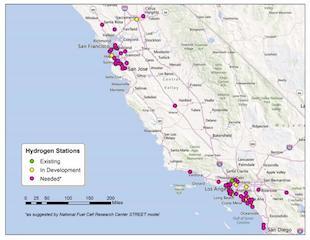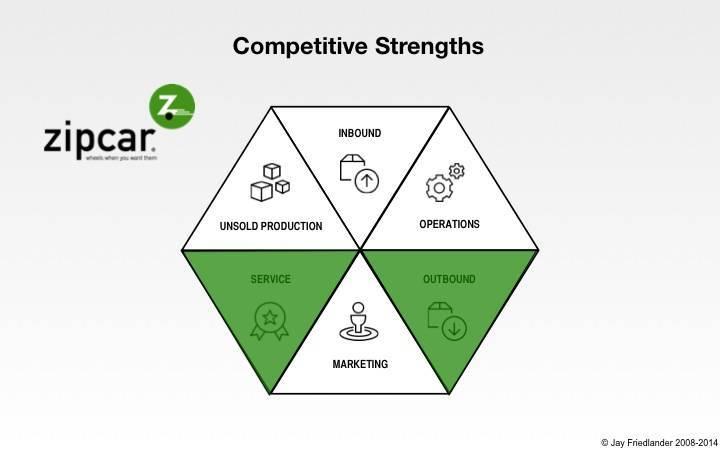Masdar Partners With Companies to Develop Energy-Efficient Desalination Pilot Project


While California is in the grip of drought after one of the driest years on record, reigniting an interest in desalination to augment supplies, in other regions of the world, such as parts of the Middle East, it's never expected that rainfall in any given year will be sufficient to meet demand. In the United Arab Emirates, desalination is already a major source of water for the country, representing 30 percent of its water supply and constituting the primary source of potable water.
But the UAE -- with a rapidly growing population, 90 percent of whom are foreigners working in the country -- still draws 65 percent of its water from ground supplies, which officials realize is not a sustainable resource. Consequently, desalination is increasingly important to address the nation's long-term water security; the Gulf region as a whole, already accounts for about 50 percent of the world's desalination capacity.
However, present technology is highly energy intensive, and UAE based Masdar announced yesterday at the high-level United Nations "Abu Dhabi Ascent" climate meeting, that it has awarded contracts to four companies to demonstrate next-generation seawater desalination technologies which will be substantially more energy efficient.
The pilot program stems from a call to action by the Crown Prince of Abu Dhabi and Deputy Supreme Commander of the UAE, His Highness General Sheikh Mohammed bin Zayed Al Nayhan, while today Masdar Chairman Dr. Ahmed Al Jaber said: "Seawater desalination is an energy intensive process that if left unchecked will become unsustainable over time. We must innovate and discover commercially viable solutions to meet our long-terms water needs."
Razan Khalifa Al Mubarak, Secretary General of Abu Dhabi's Environment Agency, pointed out that 40 percent of the global population is affected by water scarcity and no continent is immune. In the UAE, 31 percent of the country's emissions are a consequence of desalination; so the project pursues the need to decouple the water supply from fossil-fuel energy use, while at the same time providing a commercial opportunity on a global basis.
Although the pilot project will use existing energy sources in the country -- of which renewables are already part of the current mix -- the effort is to focus on improving the efficiencies of the desalination process itself. However, the new technologies piloted are expected to allow the implementation of cost-competitive, large-scale seawater desalination plants powered by renewable energy in the UAE and abroad in the future. The methods will focus on advanced innovations in membrane technologies, such as reverse and forward osmosis.
The project will be located at the site of a decommissioned desalination plant in Ghantoot, 90 kilometers from Abu Dhabi, where there is access to deep seawater. Since this is a test program, the production from the pilot will produce only about 1,500 cubic meters of water a day, enough potable water for around 500 homes, while the output will immediately be fed into the national water system. The project will run over the course of 18 months, and will be evaluated based on the resulting reduction in energy intensity achieved (kWh/cubic meter), with a desired goal to reach 60 percent of current desalination costs -- important parameters in order to be able to commercialize the technology.
The four companies chosen are Abengoa (Spain), Degremont (France), Sidem/Veolia (France) and Petaluma, Calif.-based Trevi Systems. All companies will collaborate with the Masdar Institute of Science and Technology -- a research driven, graduate university in Abu Dhabi.
Photo courtesy of Masdar
Travel expenses for the Author and TriplePundit to attend Abu Dhabi Ascent were provided by Masdar.
Follow me on Twitter: @PhilCovBlog
California Joins Push For National Fuel Cell EV Network


California has just joined the Obama administration's new public-private partnership H2 USA, and that should go a long way towards helping fuel cell electric vehicles (FCEVs) secure a place in the electric vehicle market of the future.
H2 USA was created last year in order to kickstart the FCEV market, which right now faces a classic chicken-and-egg problem. FCEVs promise greater range and flexibility than their lithium-ion battery cousins, but very few public FCEV refueling opportunities exist right now (that's the chicken), and the private sector is reluctant to start building them until more FCEVs are on the road (that's the egg).
Given California's history of leveraging its huge auto market in support of new clean technology, it looks like the logjam is about to break.
A (very) brief FCEV primer
For those of you new to the topic, a fuel cell produces electricity through a chemical reaction based on hydrogen gas, rather than storing electrical charge in a battery.
Compared to battery EVs, FCEVs take only a few minutes to fuel up, which is potentially a major advantage -- once a convenient network of hydrogen fueling stations is established.
As an alternative to diesel engines, FCEVs are becoming commonplace in large business warehouse fleets, where quick refueling combines with onsite refueling for a killer combination for forklifts and other equipment.
The Department of Defense is also working directly with General Motors to develop a consumer-friendly FCEV infrastructure in Hawaii.
Another major boost is coming from a new FCEV technology partnership announced last year between GM and Honda.
California kickstarts FCEV market
California's Air Resources Board and Energy Department announced the new development last week, with the mission of enticing early adopters into the market while identifying strategies to lower costs.
The announcement teased out the interesting point that although California is a global leader in adopting new zero-emission technology, it is still the 12th single largest carbon dioxide emitter in the world.
The fuel cell initiative is just one part of a broader goal to reduce the state's carbon footprint. To that effect, in 2012 Gov. Jerry Brown signed an executive order that established a goal of supporting 1 million zero-emission vehicles in California by 2020, by ensuring that refueling and other related infrastructure is in place.
H2 USA also includes seven other states, which together are planning for 2.2 million zero-emission vehicles by 2025.
The 800-pound fossil fuel gorilla in the FCEV market
FCEVs do share one important characteristic with EVs, and that is a general dependency on fossil sources in their fuel supply chain.
For EVs, the problem is that the U.S. electricity market is still heavily dependent on coal. Natural gas, with its attendant fracking issues, is increasingly a part of the picture, too.
That issue could become moot in the near future as wind, solar and other renewables continue to penetrate the grid. Another growing part of the market is onsite solar combined with battery storage for individual homeowners as well as business sites and public charging stations.
The situation is a little more complicated for FCEVs. Manufacturing hydrogen gas requires tremendous amounts of energy, typically in the form of fossil natural gas.
Fortunately, two renewable energy solutions are already emerging. One is the development of photoelectrochemical cells, which use sunlight to power the reaction that produces hydrogen gas. Another potential solution is the use of renewable biogas rather than fossil natural gas.
Bottom line: In the big picture, like EVs, right now FCEVs depend on a supply chain that is at least partly nonrenewable, but that could change sooner rather than later.
Image credit: Planned FCEV hydrogen stations in California courtesy of ARB
Sustainability Leaders Promote New Global Standard for Freshwater Stewardship


By Elizabeth Ferruelo
After the April release of the Alliance for Water Stewardship (AWS) Standard, I had the opportunity to speak to several founding partners including: Lisa Wojnarowski Downes, North America director of water stewardship at The Nature Conservancy; Jerry Lynch, chief sustainability officer for General Mills; Emilio Tenuta, vice president of corporate sustainability at Ecolab; and Edwin Piñero, senior vice president for sustainability at Veolia Water North America.
Predictions of a 40 percent global freshwater shortage by 2030 have inspired action on water stewardship. However, regulations differ by locality, and the cost of water varies by and within regions. Access and public perception are similarly uneven. With this in mind, how do you create water standards that are relevant for mining companies, agricultural interests and utilities alike -- from Gujarat, India to Milwaukee? For AWS, it took time, beta tests and an inclusive coalition.
After four years of revising and reiterating, gathering public feedback, and site testing, in April AWS announced the first International Standard -- a global framework to promote sustainable freshwater use. “There’s an imperative to do the work,” said Lynch of General Mills. “The standard is a way to ensure you’re making progress against the challenge.”
The development phase
Field trials were conducted across a range of industries: a hospitality company, a chemical manufacturer, a drinking water utility, two paper mills, a power plant, an oil refinery, a cement factory and an asparagus producer, among others.
“What is unique about this is it’s applicable to any site — production facility, farm, municipality — within a watershed … and it doesn’t only look at specifics of water usage for that particular entity, it looks at usage of entire watershed,” Lynch said.
AWS provides a roadmap for how water users can become stewards, or become better stewards. This is defined as driving “water use that is socially equitable, environmentally sustainable and economically beneficial through a stakeholder-inclusive process that involves site- and catchment-based actions.”
The standard was written by an independent committee of 15 experts from eight geographic regions, a third of whom represent business and water service providers, another third the public sector, and the last third civil society. This coalition aimed to create standards that were “globally consistent and locally adaptable.” Good water governance, improved water balance and quality, and protection of water-related areas with cultural or ecological importance are the pillars around which action is measured.
Lessons learned
Practitioners conducted field tests all over the world, which allowed them to experience how policies are applied in places like the Yangtze River in China, one of the most polluted waterways in the world and a source of drinking water for hundreds of millions of people.
“Last year we piloted a beta test in the lower Yangtze, and the biggest takeaways were growing awareness of water risks and stewardship opportunities at site and corporate levels. Corporations may have broad water goals, but how they mobilize those at the local level is different; there has to be alignment,” noted Emilio Tenuta of Ecolab. “We learned to identify risks that were different than those we anticipated. For example, what drives water scarcity in most cases, is water quality.”
Ecolab has customers in 170 countries and understands firsthand that planning for water risk, particularly in water-stressed areas, is essential to operations. “The biggest realization was that water scarcity and stewardship risks, such as scarcity, climate change, drought and reputational risk, were becoming realities for many of the companies we are serving,” Tenuta continued.
Despite the breadth of industry and geography, test feedback was surprisingly similar, Lisa Wojnarowski Downes of The Nature Conservancy said. Data collection at the watershed level and stakeholder engagement were two of the most common challenges to come out of the beta tests.
As part of the development committee, Veolia Water North America piloted the standard at a wastewater treatment plant. The intensive process of data collection was eye-opening, Senior VP for Sustainability Edwin Piñero said. The cost of collecting data, which would benefit a community of users, was not evenly distributed. “We need to figure out how to get this data to be shared; we need databases at the watershed level available to all users,” he explained. Veolia’s water impact tool GrowingBlue, along with GEMStat and Water Data Hub, are among the data resources and examples in more than a dozen pages of AWS guidance.
Creating business value
The standard can also help companies gain a competitive advantage. “We’ve seen interest from companies in the paper sector for example; they see it as getting ahead of their competitors to supply companies that have sustainable sourcing requirements,” noted Downes.
The Nature Conservancy together with the Pacific Institute and Water Stewardship Australia initially formed AWS. They were later joined by the World Wildlife Fund, United Nations Global Compact’s CEO Water Mandate and CDP (formerly the Carbon Disclosure Project), as well as a host of other civil society organizations and private sector partners.
Why do so many large water users support the standard? “When it comes to having a call to action for industry, it’s about making a business case for stewardship. I believe that the standard provides a framework for this at the watershed level,” Tenuta of Ecolab said. “We have to make the case that there is opportunity and need to make more effective decisions.”
Other voluntary disclosure initiatives include the Extractive Industries Transparency Initiative, the Forest Stewardship Council, or even Benefit Corp., which offers a confidential assessment tool. “The ISO manufacturing certification is a better analogy,” Tenuta continued. “It sets the standard, and through independent verification, measures quality.”
Water stewardship is a complicated process at General Mills, for whom 99 percent of water use occurs outside the company’s operations. “Because so much of this is outside of our direct control, it really does require what we like to call uber-collaboration,” Lynch noted. “The complex nature of this is the single biggest challenge.”
Downes agrees, saying: “If you’re operating in a stressed watershed, you can be the most efficient water user and have excellent pollution controls, but if others in your watershed aren’t as advanced as you are, your own efforts won’t protect you from those risks."
To summarize the standard, Piñero gave this remark: “The premise behind the standard is that implementers should not only care about their facilities, but how they interact with entire watershed. The hope is that water balance is becoming more holistically managed."
Image credit: Ecolab
California Climate Tax is Reducing Electricity Bills


Have you ever broken out into a smile from opening your electricity bill? I just did when I opened this month’s bill and saw I owed $4.91. At first I thought there must have been a mistake. But after much searching on my four-page bill I found a one-line item called the California Climate Credit that cut my bill down to less than $5.
This credit is the latest of California’s outside-the-box public policy ideas for addressing climate change: California is taxing climate changing pollution to fund credits on residential electric bills.
How the California Climate Credit reduces electric bills
The California Climate Credit is an idea enabled through California’s AB32 legislation that mandates a 29 percent cut in emissions below the levels the state is currently projected to produce in 2020. To achieve this scale of emissions reduction, California has adopted a free-market approach of taxing pollution called cap and trade.
Cap and trade is similar to a game of musical chairs. Each year California sets a lower threshold of permissible CO2 emissions -- in effect, removing a “chair.” If you are a refinery or power plant, then you have to bid against other polluters to “sit at a chair” and continue to emit CO2. Like musical chairs, each year the number of chairs -- or the amount of allowable pollution -- is reduced. That means polluters either figure out how to pollute less or increase their bid price to buy a seat from the ever-shrinking inventory of available chairs.
A cap and trade system is proven to be successful in reducing pollution. Remember acid rain? Remember the smog so thick in cities like Los Angeles that it made your throat raw? Federal and state government coalitions created cap and trade programs to increase the price of SO2 and NOX that causes acid rain and smog. The cap and trade auction process raised the price to pollute over time, and polluters responded by figuring out how to pollute less. The result is that we no longer worry about acid rain ruining our car's paint, and visiting LA is again a pleasant experience.
This same path is what California envisions for its cap and trade auctions on CO2 emissions that account for more than 80 percent of the state’s green house gas emissions. California will slowly but surely raise the price to emit climate-changing pollution. California expects that with ever-increasing economic incentives tied to not polluting that polluters will figure out how to operate their facilities with reduced CO2 emissions.
What is really intriguing is that California has decided to use some of this cap and trade tax revenue to lower electric bills. The basis for doing so is to provide funds to consumers, through lower electric bills, with the expectation that they will use these funds to invest in energy efficiency. Whether utility customers will make the leap to invest their utility bill savings in energy efficiency is a question. But without a doubt the idea of benefiting voters through lower electric bills tied to increased taxes on pollution looks like a innovative path for convincing voters that pollution taxes have a bottom line benefit not only for the environment but also for people.
Better link needed between bill credit and energy efficiency investment
The startup of the Climate Credit program does have marketing and economic issues. In terms of marketing, the marketing of this program consisted of a letter from the California Public Utility Commission that is included with a customer's electric bill. The letter was a well-written history of the legislation and regulatory decisions behind the Climate Credit.
What was glaringly missing was marketing material that linked the Climate Credit to ideas for using this credit to further reduce electric bills by investing the credit into energy efficiency items like higher efficiency light bulbs or window shades for western facing windows. An even better marketing outreach campaign would have been to have promotional coupons in the electric bills that could be redeemed with retailers and service providers that were willing to offer a special lower price on energy efficiency products/services tied to utility customers investing their Climate Credit into energy efficiency.
This lack of marketing innovation will likely negatively impact the economics of the California Climate Credit program. Both economics and marketing research suggests that without easy-to-implement ideas for investing the Climate Credit in energy efficiency, most consumers will look at this credit as windfall income that is typically spent on “discretionary” items. It is likely that the failure to generate a marketing campaign that promotes the California Climate Credit as a path toward investing in energy efficiency will result in consumers using the credit to make purchases rather than investing the funds to reduce their environmental footprint.
Smiles make great public policy
Taxing pollution through cap and trade is proven to work. Taxing what you don’t want, like pollution, is good economics. This type of tax assigns to polluters the externality cost of their pollution. It creates cost incentives for polluters to figure out how to pollute less, and it creates a pricing advantage to competitors that can pollute less. Free-market based systems like a cap and trade tax are much preferred in the business community to the complexity and challenge of complying with an ever-growing volume of regulatory law.
California’s idea of returning the funds of a pollution tax to utility consumers is an interesting innovation. The economics could be suspect if consumers then use this credit to consume more energy as a result of seeing a lower bill. But it can be great economics if consumers, supported through a marketing campaign focused on easy-to-implement action items, actually used their Climate Credit to save even more money by investing in energy efficiency. This can also be good public policy if the combination of bill credits and increased consumer awareness on the price being charged on higher-polluting goods and services then results in reduced consumer purchases of those goods and services.
At a time when tax policy seems to be a consistent thorn in the side of taxpayers and elected offices, it is worth noting that my shocked reaction at seeing a $4.91 utility bill was a big smile. The idea of using a tax on pollution not only to reduce environmental consequences but also to put money in the consumer's pocketbook is worth further public policy exploration. California’s innovation of taxing pollution to fund reduced electric bills is a path that public policymakers should consider for reducing pollution while also putting a smile on the faces of the 90 percent of utility consumers who have not seen real income growth for 15 years.
Image credit: Energy Upgrade California via Facebook
Bill Roth is an economist and the Founder of Earth 2017. He coaches business owners and leaders on proven best practices in pricing, marketing and operations that make money and create a positive difference. His book, The Secret Green Sauce, profiles business case studies of pioneering best practices that are proven to win customers and grow product revenues. Follow him on Twitter: @earth2017
Strategic Sustainability: Five Steps to Create Abundance


If you experience discord between the importance of sustainability to your business and the seemingly haphazard efforts to implement sustainable initiatives, you are not alone.
A recent report titled "Sustainability's Next Frontier" from Massachusetts Institute of Technology and Boston Consulting Group found that while nearly two-thirds of business respondents felt sustainability issues were important, only 10 percent of companies were fully able to tackle them. Linking sustainability and business strategy was a key difference in whether or not companies were able to make gains from sustainable practices.
The Abundance Cycle (right) bridges the gap and makes sustainability strategic.
A case study: Creating abundance in one of the biggest industries on Earth
The auto industry gives us fertile ground to demonstrate the Abundance Cycle. For a sense of scale, if the five largest auto companies were combined their sales would be the twentieth largest economy on the planet. The industry employs millions around the globe and sells a copy of its product roughly every two seconds. For better and worse, the industry embodies the successes and failures of the industrial revolution as well as the sustainability challenges we are facing. Bankruptcies and government bailouts aside, the industry has undergone significant upheaval in the past decade. While companies large and small are redefining the auto industry, this article focuses on Zipcar.Zipcar is at the forefront of companies using the 3p model (below). In just 14 years the company has grown exponentially from a few VW Beetles to igniting a $10 billion industry and serving over 810,000 members driving roughly 10,000 Zipcars in cities from Boston to Barcelona.
Step 1: Focus on your purpose
Your purpose is powerful.Most companies are founded to solve a problem or provide a new solution, not to “maximize shareholder value.” As Conscious Capitalism has shown, having a reason you exist beyond making money motivates employees, draws in customers, offers a clear litmus test for management and results in superior stock performance. Articulating your purpose is key to aligning strategy and sustainability. With Zipcar, the purpose of the company is “wheels when you want them.” In other words, personal mobility when customers need it without the burden of car ownership.
Step 2: Identify your competitive strengths
Every company has its competitive strengths. Identifying these areas in the Abundance Cycle helps ensure that your sustainability efforts have the maximum impact on the 3Ps and tie directly to a company’s strategy. Inspired by car sharing in Europe, Zipcar eschewed the manufacturing focus of traditional auto companies. Instead Zipcar built a community of customers and created technology to make accessing a car as easy as getting money from an ATM. Furthermore, the wide distribution and many types of Zipcars “living” in people’s neighborhoods maximizes convenience. The Abundance Cycle below highlights Zipcar’s competitive strengths.Step 3: Maximize your advantage using abundance tactics
While Zipcar gives people a new solution for local transportation, a casual observer may believe it is simply a rental car company. Though significant overlaps exist, in many ways Zipcar competes more directly with car ownership rather than car rental. Zipcar’s model, providing a solution for transportation using shared access, completely upended the financial equation for potential car buyers and current owners. Zipcar drastically slashed the upfront investment costs, eliminated long-term loan obligations, and removed the burden of maintenance, storage and insurance for customers.Along with the sharing economy measures used by Zipcar, a growing suite of roughly a dozen tactics are creating new business models, reducing environmental impact and strengthening society. As you can see from the exhibit below, each of the tactics is being used in the global auto industry. Once a company has determined its competitive strengths, it can use these tactics to reimagine its enterprise. More information and examples of each tactic listed below will soon be available at the Abundance Cycle website.
Examples of tactics starting in the upper left: Vehicle to grid charging station, Relay Rides; Walmart Advanced Vehicle Experience or WAVE fuel efficient truck; London’s SkyCycle bicycle highway; the Bullet Train inspired by a hummingbird’s beak, Abu Dhabi’s pod car; Philippine’s Clean Engine, Tata’s compressed air car; Fiat’s crowdsourced car Mio; Portland Streetcar in Portland, Ore.; Tesla; Citibikes in New York City.
Step 4: Communicate with your language and implement
Once you are set to embark on a plan, align your communications with the language of your firm and your customers. Language is a serious barrier, and many sustainability efforts fail because the executive team and/or the customers don’t understand the value these initiatives create for them. When seeking to build momentum create a track record of success by starting with the easiest projects with the highest impact.For example, in lieu of customer communications extolling Zipcars relieving congestion, enhancing the local economy or reducing greenhouse gases, Zipcar focuses on how their service improves customers’ sex life and places customers on technology’s cutting edge. These messages perfectly fit their digital savvy, educated, urban clients.
Step 5: Measure, report and repeat
As you prepare to implement, capture stories and create strategically relevant metrics that integrate business performance along with environmental and social gains. Internally, Zipcar’s technology platform gathers extensive financial, usage and other data allowing them to build a replicable model.As with all companies, Zipcar continues to evolve, investing in peer-to-peer car sharing company Relay Rides and being acquired in 2013 by Avis for roughly $500 million. It remains to be seen if their abundant framework will spread to the rest of the $2.5 trillion automobile and transportation industries. However, judging by the explosion of innovation outlined above, entry of car manufacturers into car sharing and the growth of companies like Uber, we are at the beginning of a wave of change.
Start building abundance in your company
Follow this five-step process and download the Abundance Cycle canvas to gain a new perspective and discover opportunities for abundance.Last November, strategic sustainability and the value web were introduced in Triple Pundit. Based on the feedback we received, we have since renamed it the Abundance Cycle.
Sources:
Trying a Zipcar Could Improve Your Sex Life, PR Newswire
January 2013 Investor Presentation Regarding Avis Budget Group’s Acquisition of Zipcar
Charts courtesy of the Abundance Cycle
Advertisements courtesy of Zipcar
Professor Jay Friedlander is the Sharpe-McNally Chair of Green and Socially Responsible Business at College of the Atlantic (COA) in Bar Harbor, Maine. COA has been repeatedly cited as a leader in sustainability and Jay’s work has been covered in Fast Company, Princeton Review, CNN, Chronicle of Higher Education, Christian Science Monitor and Money amongst other media. Jay has been a frequent presenter at conferences in the United States, as well as New Zealand, Australia, and the European Union on sustainability, enterprise and innovation. Jay can be reached at [email protected].
About the College of the Atlantic’s Sustainable Business Program: In the sustainable business program at the College of the Atlantic, students experience how environmental and social strategies bring about positive change in the world, while also strengthening the enterprise itself. Students in the program start companies, consult with enterprises and use these strategies in ventures ranging from alternative energy and advocacy to food systems and the creative economy.
MacArthur and Master Card Foundations Invest $24 Million in Secondary Education


By Lina Constantinovici
At the Global Philanthropy Forum last week, MacArthur Foundation and MasterCard Foundation shared insights from the funder collaborative launched in 2012 that seeks to increase secondary education access and improve learning outcomes for marginalized populations.
The Partnership to Strengthen Innovation and Practice in Secondary Education (PSIPSE) has issued $24 million in grants to 40 projects in seven countries: Kenya, Uganda, Nigeria, Tanzania, Democratic Republic of the Congo, Rwanda and India. Project durations are one to three years. In addition to the two foundations, several other partners have joined to support the initiative – Intel, Human Dignity Foundation, Comic Relief and Dubai Cares.
This month, PSIPSE announced its third Request for Proposals from NGOs focused on delivering secondary education programs. Proposals can be submitted at www.macfound.org/PSIPSE.
With secondary education enrollment in 2012 at 16 percent in Niger, 18 percent in the Central African Republic, 23 percent in Chad, 26 percent in Mozambique, 26 percent in Burkina Faso, and 19 other countries below 50 percent according to the World Bank, the need for these programs currently far exceeds the capacity of foundations and NGOs working to deliver them. According to MacArthur Foundation, of those who should be in secondary education and are not, 39 million are girls. The Brookings Institute Global Compact on Learning states: “If all children in low-income countries left school knowing how to read, something which currently does not happen, then 171 million people could move out of poverty. There is broad agreement— and significant evidence—that education enhances people’s ability to lead happier, healthier, and more productive lives.”
While the MacArthur and MasterCard foundations' initiative represents a traditional approach to education that is focused on vocational training, keeping girls in school to delay marriage and childbirth, and developmental health, some of the other foundations represented at GPF are taking a different approach to affecting education in developing countries. Motwani Jadeja Family Foundation has applied a Silicon Valley entrepreneurial mindset to enabling 21st century skills in Africa and India. MJFF has funded FabLabs (maker spaces with 3-D printers and a full spectrum of prototyping equipment) to facilitate community-driven innovation, learning, and fabrication. The foundation is also funding a School in the Cloud project inspired by the recent work of Sugata Mitra and his 2013 TED talk on education seen by nearly 2 million viewers.
With more than 1 billion of the global population living in slums today with inadequate access to education, foundations, NGOs, global organizations and corporations are investing in ensuring that demography is not destiny.
Another example of collaborative approaches is an alliance of community philanthropy supporters spearheaded by Global Fund for Community Foundations, the Aga Khan Foundation USA, Charles Stewart Mott Foundation, and Rockefeller Brothers Fund. Community foundations grew by 86 percent between 2000 and 2010, with an average of 70 institutions created every year. “Over the last several years, there’s been a newer wave of community philanthropy organizations” says Halima Mahomed of TrustAfrica. “They are organic, rooted in context, not wedded to a particular concept, and they don’t tick the boxes of someone else’s notion of community philanthropy.”
This year’s Global Philanthropy Forum theme “Global Goals – Citizen Solutions” was accompanied by an invitation from CEO Jane Wales to participants to see challenges and their solutions in new ways, to “explore the process of redefining leadership and citizenship, markets and value, service and society – and development itself.”
“There has been a shift in terms of how community philanthropy is practiced in developing nations. It’s moved from the North American fixation of donor needs and is much more flexible. The innovation is coming from Africa, Asia, and Latin America,” added Avila Kilmurray of the Community Foundation for Northern Ireland.
Lina Constantinovici, MBA - building and economy that creates conditions conducive to life as the Founder and CEO of StartupNectar, an incubator for early-stage breakthrough solutions in the water, energy, and material science space. Lina's work is focused on innovation in early-stage funding and support for for-profit and non-profit solutions that have the potential to address key global challenges with an eco-system approach, as well as on contributing to evolving our macro-economic structures towards more sustainable ones. Lina has also been designing education programs and curricula that build capacity to navigate an increasingly complex world.
Ceres to Corporations: You're Gaining Ground, But Pick Up the Pace


Too much talk, not enough walk. That’s one way to sum up a recent report from Ceres and Sustainalytics on just how well 613 of the country’s largest publicly-traded companies are integrating sustainability concerns into business decision-making. The 'Gaining Ground' report, released earlier this week, measures companies’ progress on a sustainability “roadmap” created by Ceres to help guide businesses toward meaningful, long-term and measurable sustainability tactics. It tracks the same group of companies assessed in a similar 2012 report, and covers 20 expectations across four areas: governance, stakeholder engagement, disclosure and performance.
The results leave much to be desired. The authors paint a picture — thoroughly backed with meticulous analysis — of a corporate world caught flat-footed in the accelerating race against climate change. While there were some standout actors and some modest gains across most areas under study, the authors contend that, overall, businesses are simply not moving fast enough to address sustainability concerns.
Nevertheless there at least two reasons to be optimistic that corporations will learn to catch up: 1) Investors are paying more attention to sustainability and, 2) with each passing day of crazy weather, natural disasters, workplace tragedies and materials shortages, the business case for sustainability is getting stronger and stronger.
Gaining Ground is definitely worth a full read for all you corporate social responsibility (CSR) wonks out there. The list of insights and fascinating examples is too long to detail here, so here are just a few of the most intriguing takeaways:
Investors are watching more closely, and they are looking for action on climate change
Investor interest in sustainability issues has shot up since the last report in 2012. In the 2014 proxy season, the number of shareholder resolutions related to climate change and other environmental issues increased 20 percent from 2012. Sustainability concerns are beginning to become more institutionalized — stock exchanges in London and Johannesburg (among other cities) now require listed companies to disclose “sustainability risks and opportunities.”
While U.S. exchanges have yet to jump on board, corporations are naturally lending an ear to investor concerns. The number of companies engaging with investors on sustainability issues grew from 40 percent in 2012 to 52 percent this year. The momentum is promising, but there is room for improvement on quality. Pressure from investors on companies to make material changes to manage climate change risk may prove to be a much greater impetus for sustainable business than “green” consumer demand.
Change must come from the top, but leaders are dragging their feet
CEOs and companies are often quick to voice concern over climate change and other environmental issues. Ninety-three percent of CEOs surveyed by the U.N. in 2013 said sustainability performance was important to future company success. In another U.N. report, 60 percent of over 1,000 companies reviewed publicly advocate for climate action — but only 30 percent align thier lobbying activities with their own stated goals.
As they say, actions speak louder than words. Ceres cites leadership at the board and management level as a crucial driver for sustainability action, but their findings show change at the top is slow and stubborn. Less than a third of companies currently have board oversight over sustainability issues. The number of companies with strong sustainability and risk managment policies actually decreased to 19 percent from 24 percent in 2012.
Accountability on the management level has also been slow to take — only 25 percent of companies surveyed have an executive committee with oversight on sustainability goals and progress. One the upside, the number of companies linking executive pay to sustainability targets is on the rise, up from 15 percent in 2012 to 24 percent today. But there’s an important caveat — only 40 companies publicly disclose those targets and, of those, only 19 set voluntary sustainability targets, like greenhouse gas emissions.
Disclosure is up, but sustainability targets sometimes miss the mark
As the authors note, disclosure is a critical step on the path to sustainable business. Disclosure means accountability, and accountability means action. Almost half (48 percent) of companies studied now disclose material sustainability risks in financial filings, up from 39 percent in 2012. The number of companies using industry-standard GRI guidelines in sustainability reports crept up from 29 percent to 32 percent this year. These modest gains are a step in the right direction, but over half (313) of the country’s largest companies still haven’t taken any steps toward transparent sustainability reporting.
While disclosure is essential, setting the right targets is equally important. For example, 79 percent of companies have a formal environmental policy, but very few set sector-specific targets. Instead of zeroing in on specific changes, companies tend to punt broad — and their performance on this measure is getting worse. Only 19 percent of companies have formal policies on sector-specific environmental and social issues that place them in the top two performance tiers for this report. This is a decline from 26 percent in 2012.
Similarly off the mark, authors note, is the fact that too many companies treat sustainability as a stand-alone metric. That tactic is, they say, “short-sighted and risky because sustainability is implicated in every decision, from product design and delivery to supply chain management.”
They recommend biodiversity as an increasingly important lens through which companies in manufacturing, food and beverage, energy and other relevant industries can evaluate business impact. A commitment to biodiversity, the authors point out, “demonstrates an understanding of the connections between social, environmental and economic issues.” However only 6 percent of relevant companies have a formal biodiversity policy.
One more important, but unrelated, statistic worth noting: Only 160 companies (26 percent) formally protect employees’ right to freedom of association and collective bargaining.
The authors of the Gaining Ground report repeatedly frame climate change and related effects as not only a risk to businesses, but also an opportunity. With climate change scientists issuing increasingly urgent calls to action and bottom-line-focused investors finally registering the very real business risks, one thing is undeniable: American companies need to not only talk the talk, but also walk the walk.
Image courtesy of Ceres
U.N. Secretary General On Climate Change: 'It’s Time to Lead'


The opening speeches at the high-level U.N. meeting on climate change at Abu Dhabi Ascent on Sunday constituted a rallying call to world leaders; a declaration that it's time to stop talking and start taking action.
Proceedings opened with a welcome speech by Dr. Sultan Ahmed Al Jaber, the United Arab Emirates' Minister of State and Special Envoy for Energy and Climate Change. Citing the recent IPCC report on climate change, he told the audience: "We have before us only 15 years to address decades of environmentally harmful activities, and to prevent a global temperature increase of 2 degrees Centigrade," adding later, "If we are to successfully mitigate climate change, then we must commit to a decade of action."
Following Dr. Al Jaber, Secretary General of the United Nations, Mr. Ban Ki-moon, reinforced the message with a sombre warning: "Climate change is the defining issue of our time ... If we do not take urgent action, all our plans for increased global prosperity and security will be undone." His rallying message came towards the end of his speech when he said, "Climate action is feasible, affordable and beneficial ... Change is in the air. Solutions exist. The race is on. It’s time to lead."
Concluding the opening segment, Mr John W. Ashe, United Nations President of the 68th session of the General Assembly, succinctly provided some stark reminders: "We have engaged for far too long in talks;" "We need to take action now, and it has to start today;" and finally, "We have to make Paris meaningful." - Referring to the 2015 U.N. FCCC Climate Change Conference in Paris where a global, binding climate agreement will be negotiated.
The message is clear, delegates from governments around the world need to use this meeting to begin addressing solutions in a collaborative manner; and to get the ball rolling, immediately following the conference opening, Mr. Al Gore, former Vice President of the United States, made the keynote address.
Mr. Gore used powerful graphics and charts in a tone familiar to those who watched his 2006 documentary, "An Inconvenient Truth," to reinforce the urgency that action must be taken. His address was up-to-date in terms of chronicling extreme weather events of the last week, such as the devastating mudslide in Afghanistan and extreme rains in Florida, while depicting alarming trends such as the fact that between 2006 and 2010, drought has turned 60 percent of Syria's fertile land into deserts. Indeed, as Mr. Gore noted that extreme heat events are 100 times more common than they were three decades ago, the picture was the familiar and depressing one.
But more optimistically, things have moved forward since Mr. Gore's film was released around eight years ago. He pointed out that today, 79 countries have reached the point where the price of solar energy has reached price-parity with grid average prices, and that within six years, 82 percent of people globally will have access to solar energy at, or lower, than grid average prices.
Mr. Gore also applauded the fact that the business and investment community is moving forward at a rate far greater than that of governments in terms of investment flows, and that new business models are appearing -- and new finance models, too. And he is optimistic that while actions to address climate change have started off slower than expected, they will end up being faster than expected in the end. We'll see if global government leaders pick up the mantel, but in the meantime Mr. Gore concluded, "Political will is a renewable resource."
But this perhaps is a proving ground of the political will that will play out over the next year. In a later press conference with Ban Ki-moon and Dr. Al Jaber, it was stressed that the meeting in Abu Dhabi is a very important milestone, and one where it is hoped strong political momentum is generated; because this is the last stop before the U.N. climate conference in New York in September of this year, which is itself the last stop before global leaders hash out an agreement next year in Paris.
Photo courtesy of Abu Dhabi Ascent
Travel expenses for the Author and TriplePundit to attend Abu Dhabi Ascent were provided by Masdar.
Follow me on Twitter: @PhilCovBlog
U.S. Federal Government Amps Up E-Waste Reuse and Recycling


The U.S. federal government is the nation’s largest consumer and disposer of electronics. Considering the number of federal employees—about 2.7 million at last count, not including the military or courts—U.S. government employees contribute a massive portion to the approximate 2.4 million tons of electronic waste, or e-waste, that is discarded annually. Not only are those monitors, printers, cell phones and all those peripherals leeching chemicals into soil and water supplies, government (as well as companies) leave money on the table thanks to all of those rare earth minerals allowing them to function in the first place.
Now the feds say they will become even more aggressive managing the recycling, reuse and eventual disposal of electronic goods. The General Services Administration (GSA), which in layman’s terms is the buyer of all the gadgets federal government employees need, has proposed a new rule that aims to make the federal government a more responsible e-waste steward.
What does this rule propose? First of all, dispensing e-waste by incineration or into landfills is no longer acceptable. Reuse, says the GSA, will be the mantra if this new rule is passed. Agencies will have to make every effort to offer unwanted electronic equipment to other federal government offices. Failing that, such products would then be donated to local and state governments, schools, or non-profits. And in a move that will hardly make a dent in the federal government’s debt but would still be a welcome gesture by those irritated by government inefficiency and waste, government agencies would also be allowed to sell equipment. As for what happens to the electronics that leave federal government offices, the GSA says the purchasers will be “encouraged” to follow the feds’ reuse and recycling procedures—which some e-waste mavens will say is a case of wishful thinking.
Electronics the federal government is unable to offer for reuse will then be sent to recyclers. The GSA will only allow unwanted goods to be sent to companies certified by R2 and e-Stewards: which incidentally are the only two organizations certified by the U.S. Environmental Protection Agency (EPA). In order to shed some transparency on the process, the GSA claims it will develop policies mandating government agencies to submit data for all unwanted and discarded electronic goods, and will release that information publicly on Data.gov.
While many electronics manufacturers, retailers and users are improving their management of e-waste, the statistics are still overall abysmal. Cell phones are still recycled at a rate that could be as low as 8%. Computers fare much better, but 62% of computers (by weight) still ends up entombed in landfills. With the world becoming even more wired as electronics become more affordable, more needs to be done—and regulators, starting with the federal government, have got to lead by example.
The public comment for the GSA’s proposed rule ends today (May 5). The next step the federal government must take is partnering with companies to see that more electronics end out of the trash and recycled responsibly.
Leon Kaye currently lives in the United Arab Emirates, where he works for the Abu Dhabi office of APCO, a communications consultancy.
[Image credit: Wikipedia (Zinneke)]
Spanish Island Powered by 100 Percent Renewable Energy


The possibilities of renewable energy are on display as El Hierro, the smallest of Spain’s Canary Islands, is set to become the world’s first land mass to be fully energy self-sufficient, when an 11.5 megawatt wind farm goes online late next month.
El Hierro, with a population of a little over 10,000, already has a water turbine that generates electricity, so it will be the first island to secure a steady supply of electricity by combining wind and water power, according to an article in the U.K.’s Daily Mail. The island has no connection to any outside electricity network.
The turbines will generate enough power to meet residential demand, as well as power the island's water desalination plants. Surplus power from the wind turbines will be used to pump fresh water from a reservoir near the harbor to a larger one at a volcanic crater located approximately 2,300 feet above sea level. And when there is little or no wind, the water will be channeled down to the lower reservoir through turbines to generate electricity.
“This system guarantees us a supply of electricity,” said Juan Manuel Quintero, director of the $110 million Gorona del Viento wind power plant, who was quoted in the Daily Mail article.
Island authorities own 60 percent of the plant, with 30 percent held by Spanish energy company Endesa and 10 percent by a local technology institute. Quintero estimated that revenue from the plant will increase the island’s budget by about $1.4 million to $4.2 million a year. “These are revenues that can go to the local residents, to subsidize water prices, infrastructure, social policies,” he told the Daily Mail.
El Hierro’s power plan will cut 18,700 tons of carbon dioxide emissions per year and eliminate its annual consumption of 40,000 barrels of oil.
The island is cited as a pioneering project by IRENA, the international organization for renewable energy. And Alain Gioda, a climate historian at France IRD science research institute told AFP: “The true novelty of El Hierro is that technicians have managed, without being connected to any national network, to guarantee a stable production of electricity that comes 100 percent from renewable energy, overcoming the intermittent nature of the wind.”
It can be done: the renewable energy future is happening right now. El Hierro's wind power plant has interest from other islands, including officials from Aruba, Hawaii, Samso in Denmark, Oki in Japan, and Indonesia.
And this story gets even better: El Hierro has a target of 2020 for all of its 6,000 vehicles to run on electricity under an agreement with the Renault-Nissan Alliance.
Image: La Gorona del viento by Pau Gómez via Flickr